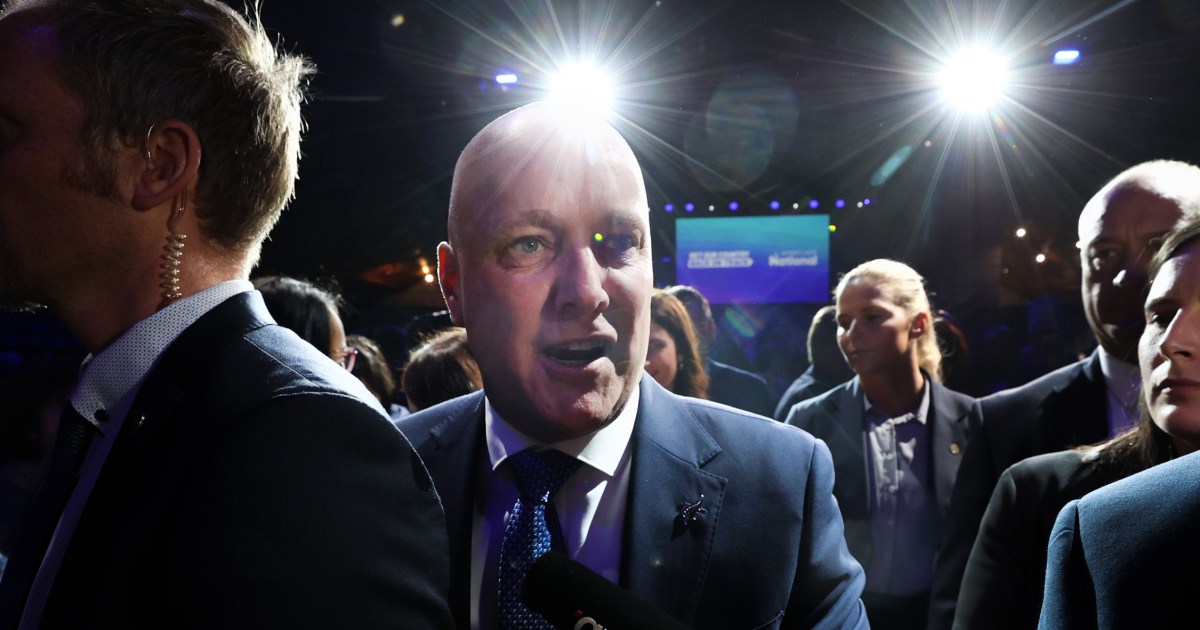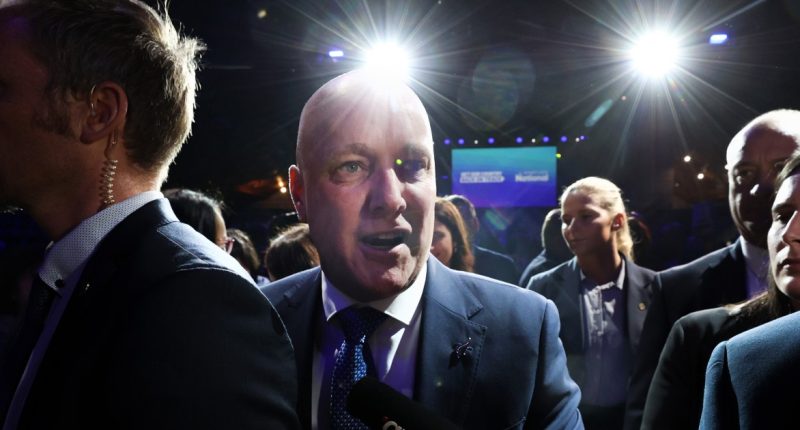
AUCKLAND, New Zealand — Voting closed Saturday in New Zealand and ballot counting was underway in a general election, with early results indicating people were favoring a conservative change after six years of a liberal government led for most of that time by Jacinda Ardern.
With more than one-third of the votes counted, former businessman Christopher Luxon was poised to become the nation’s next prime minister.
Ardern unexpectedly stepped down as prime minister in January, saying she no longer had “enough in the tank” to do the job justice. She won the last election in a landslide, but her popularity waned as people got tired of COVID-19 restrictions and inflation threatened the economy.
Her departure left Chris Hipkins, 45, to take over as leader. He had previously served as education minister and led the response to the coronavirus pandemic.
The initial vote counting showed Luxon’s National Party with over 40% of the vote. Under New Zealand’s proportional voting system, Luxon, 53, was expected to form an alliance with the libertarian ACT Party.
Meanwhile, the Labour Party that Hipkins leads was getting only a little over 25% of the vote — about half the proportion it got in the last election under Ardern.
And in a result that would be particularly stinging for Labour should it hold up, National was leading in Ardern’s old electorate seat, Mount Albert. The seat has long been a Labour stronghold and was also held by another former Labour prime minister, Helen Clark.
The National Party candidate for the seat, Melissa Lee, told The Associated Press she was feeling excited but also nervous about the final result in Mount Albert.
“It’s been Labour since 1946. It has been the biggest, safest Labour seat forever,” she said. “It would be fantastic if we won it.”
Lee said that when she was door-knocking, people had told her they were tired of the current government and were concerned with the state of the economy and the spiraling cost of living.
David Farrar, a longtime conservative pollster, said there was still a good chance that Labour would end up holding the seat once all the votes were counted. However, he said, his initial impression of voting throughout the country was that it was turning out to be a “bloodbath” for the left.
Luxon has promised tax cuts for middle-income earners and a crackdown on crime. Hipkins had promised free dental care for people younger than 30 and the removal of sales taxes on fruit and vegetables.
Also at stake in the election is the government’s relationship with Indigenous Māori. Luxon has promised to axe the Māori Health Authority, which he says creates two separate health systems. Hipkins says he’s proud of such co-governance efforts and has accused Luxon of condoning racism.
Within days of taking the reins in January, Hipkins found himself dealing with a crisis after deadly floods and then a cyclone hit New Zealand. He quickly jettisoned some of Ardern’s more contentious policies and promised a “back to basics” approach focused on tackling the spiraling cost of living.
Warm spring weather in the largest city of Auckland seemed to encourage voters, with queues forming outside some polling places. Early voting before Election Day was lower than in recent elections.
During a six-week election campaign, both Hipkins and Luxon traveled the country and hammed it up for the cameras.
Earlier in the week, Luxon, who served as chief executive of both Unilever Canada and Air New Zealand, told an energized crowd in Wellington that he would crack down on gangs.
“I’ve gotta tell you, crime is out of control in this country,” Luxon said. “And we are going to restore law and order, and we are going to restore personal responsibility.”
Luxon also got cheers when he promised to fix the capital’s gridlocked traffic with a new tunnel project.
Luxon is relatively new to politics but held his own against the more experienced Hipkins during televised debates, according to political observers. But Luxon also made some gaffes, such as when he was asked in a 1News debate how much he spent each week on food.
His answer of “about sixty bucks” (U.S. $36) was ridiculed on social media as showing him being out of touch with the cost of living.
Source: | This article originally belongs to Nbcnews.com










